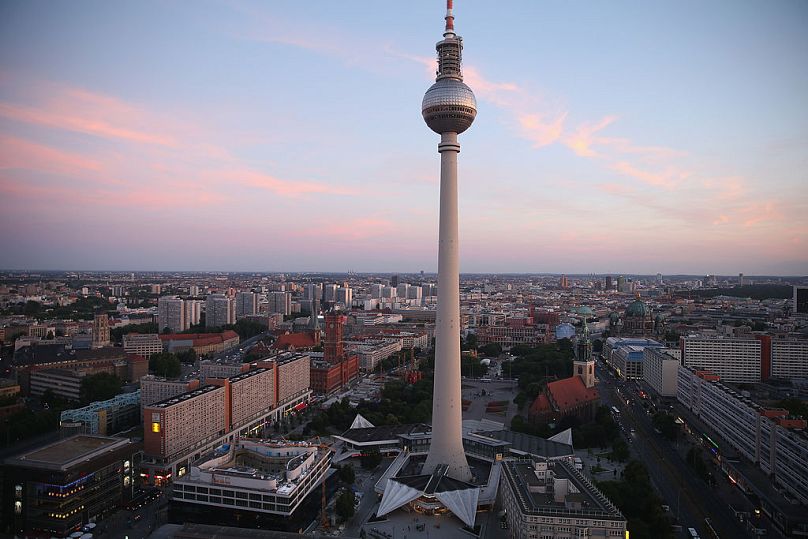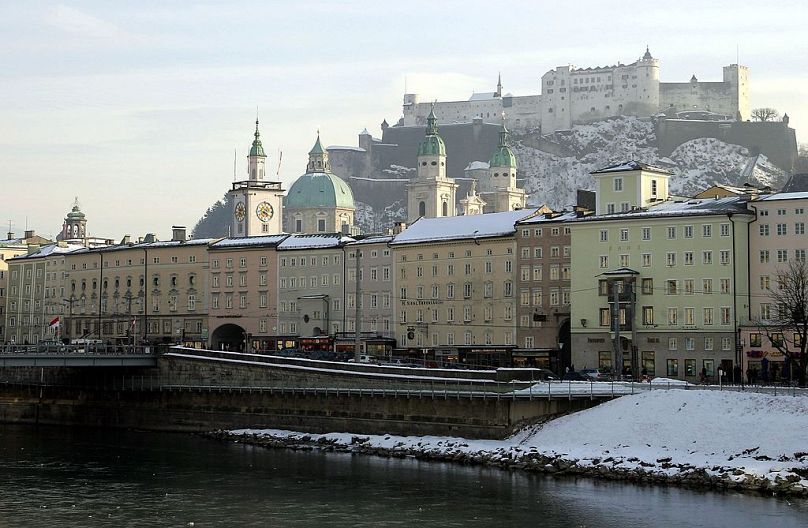The top spot has been held by Austria while German citizens are far less happy than before, according to new EU data.
The happiest and least happy nations in the European Union have been revealed - and the results might surprise you.
 ADVERTISEMENT
ADVERTISEMENT
 ADVERTISEMENT
ADVERTISEMENT
Austria, Poland and Romania make up the top three most happy EU nations.
At the other end of the scale, Germany is officially the second to bottom on the ranking, beaten to the depths of the poll only by Bulgaria.
In fact, Bulgaria was the only country of the 27 surveyed to come in with an overall score of less than six out of ten - the highest possible result - for overall life satisfaction in 2022.
Every year Eurostat, the bloc’s official statistics agency, measures how happy a sample of the population in each member state say they are with their lives.
That scale runs from zero - absolute dissatisfaction - to ten - meaning that things could not be going better.
It also asks how optimistic individuals questioned are about the future or, as the case may be, how pessimistic.
While one might assume the richer the country, the happier the people, it doesn’t seem to be the case across the board.
Germany's happiness score falls
While Germany has one of the strongest economies among the 27 nations, the figures on happiness are stark.
In 2021, they came in with a score of 7.1. The newest data shows that it has fallen to just 6.5.
Although mere statistics can’t explain why people are so much less happy than the previous year, they do indicate an increasing darkening of the collective German mood.
Another German body, the Rheingold Institute based in Cologne uses polling mixed with in-depth interviews.
In a study published last week, they found that people “overwhelmed by anxiety” made up 20% and a further 9% were classified as “uninterested and withdrawn”.
Germany has been suffering with economic stagnation alongside unease relating to the war in Ukraine as well as unprecedented growth in immigration and a relatively unpopular government.
What makes the happiest nations happy?
This isn’t the first time that Austria has topped the table. They gave their happiness levels an average score of 8.
Austria is a well off country so this may come as little surprise.
In Romania and Poland, though, two rather poorer nations, life satisfaction is at the higher end of the scale - suggesting that more money does not necessarily equal more happiness.
Instead, it seems as if factors such as age, level of education, family and financial situations could be more indicative of overall satisfaction as opposed to wealth
Despite the much-reported struggles of Millennials and Gen Z, most Member States showed that people aged between 16 and 29 showed higher life satisfaction compared to those above the age of 65.
The opposite pattern was only seen in Denmark, Sweden, Ireland, the Netherlands, Luxembourg and Finland.
Financial security does manifest in the data to an extent though - just perhaps not in the way you might expect.
Life satisfaction seems to be fairly dependent upon an individual’s level of education - which, to a certain extent, reflects income levels.
In every Member State across the board, life satisfaction increased in parallel with the level of education.
In Slovakia it mattered the most, with a difference of some 1.6 points between those with tertiary education and those having primary (less than secondary) education.
Where you live also makes a difference - although these findings are far more split.
In Malta, Austria, Finland, the Netherlands, Belgium, Ireland, Sweden, Denmark and Luxembourg people in rural areas declared themselves slightly happier, by 0.2 points and above.
In Bulgaria, Romania, Lithuania, Slovakia, Portugal, Hungary, Croatia, Cyprus, Germany and Slovenia, though, urban dwellers said they were more satisfied with life.
Households with children were reportedly the happiest, whereas single person dwellings were the least. That is peculiar to Europe as research undertaken on other continents has found the opposite to be true.
That is a trend that will perhaps be followed by Europe in the near future.
Between 2018 and 2022, life satisfaction decreased the most, -0.3 points, for households with dependent children.
When it comes to sex, there is very little difference to be found. Men got slightly less content between 2018 and 2022 than their female counterparts - but both sexes still average 7.1 points at EU level.
Geographical trends?
The studies show that there is a fairly significant divide across various parts of the EU.
On the whole, people in the northern and many western parts of the bloc tended to be more satisfied with their lives than people in the Baltic countries.
Those living near the Mediterranean area and in eastern parts of the EU were mostly more unhappy.
It’s not all bleak, however.
In those countries with generally lower life satisfaction, slight increases took place between 2018 and 2022 - and the opposite was true in those typically ‘happier’ nations.
Like most studies of this type, the results are not an exact science.
Measured in a subjective manner with a focus on people’s cognitive overall assessment of their life and eudaimonia - or the feeling that one's life has a meaning - will always be variable.
So, while Germany and Bulgaria might think the results mean their lives are about to get gloomier as we plunge further into the depths of winter, it might not be the case at all, come the results of the 2023 study next year.












